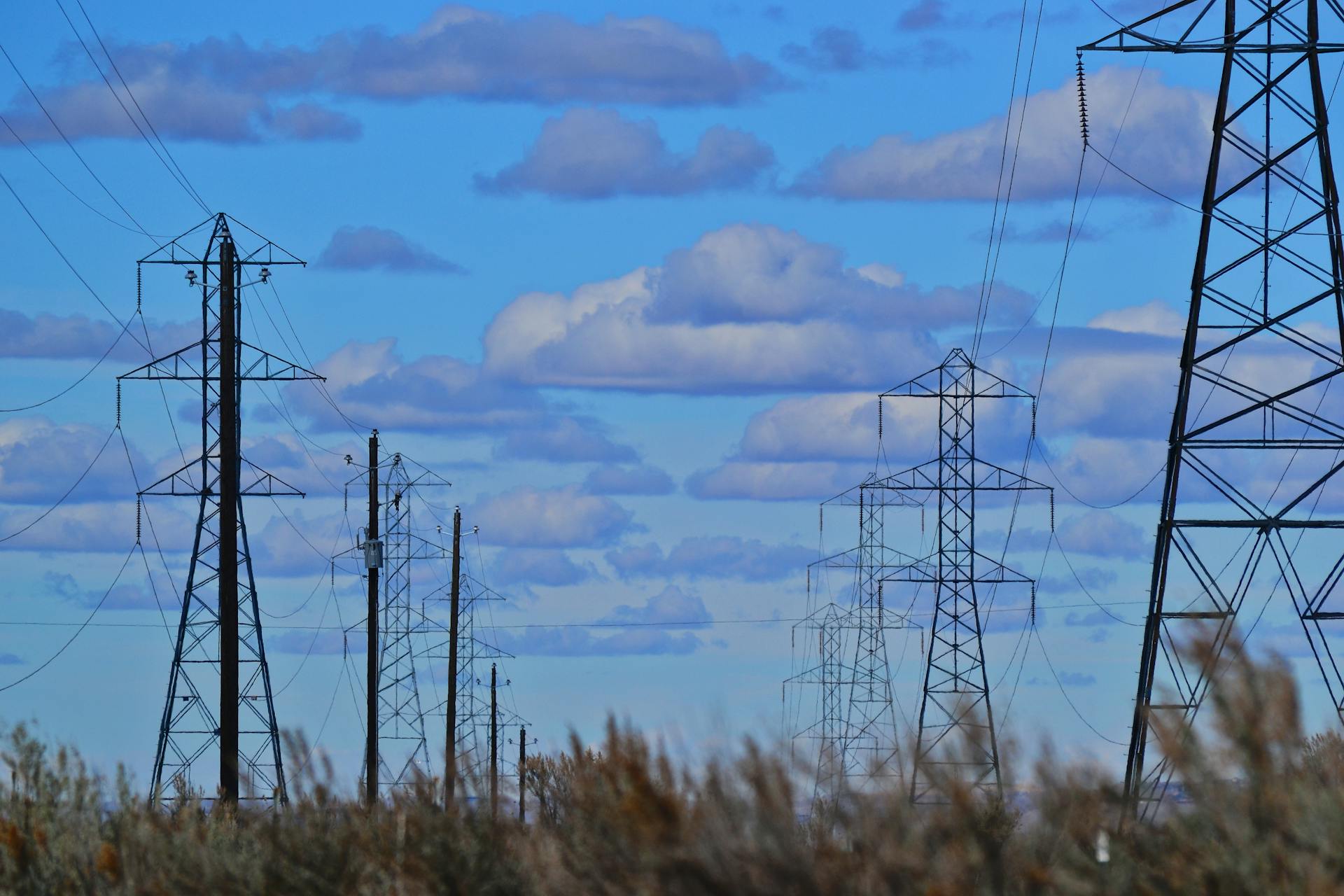As the world races toward a sustainable future, the financial landscape of fossil fuel investments faces an undeniable reckoning. With climate change accelerating and renewable energy technologies advancing, the fossil fuel sector stands at a critical juncture. Investors who fail to recognize the seismic shift away from fossil fuels risk being left behind in an economy that increasingly favors green alternatives.
The fossil fuel industry has long been a pillar of global economic growth, drawing significant investments from governments, corporations, and institutional investors. However, as we move towards 2050, the tides are changing. Governments are enacting stricter climate policies, the world is transitioning to clean energy, and renewable technologies are becoming more cost-effective and efficient. Amidst this global shift towards sustainability, the financial risks associated with fossil fuel investments are becoming more pronounced.
As the world accelerates its push for net-zero emissions, the landscape for fossil fuel assets is rapidly evolving. Stricter regulations, the rise of clean energy alternatives, and growing investor pressure to align with Environmental, Social, and Governance (ESG) criteria all suggest that fossil fuel investments may face significant financial volatility in the years ahead. For investors, understanding these risks is no longer optional—it’s essential to safeguarding the future of their portfolios. This article delves into the financial risks of holding onto fossil fuel investments beyond 2050 and why investors must reassess their strategies in a rapidly decarbonizing world.
1. Global Climate Policies and Regulations
The Paris Agreement, adopted in 2015, set the stage for a global effort to limit global warming to well below 2°C, with a target of reaching net-zero emissions by 2050. This ambitious goal has led countries worldwide to introduce policies aimed at reducing carbon emissions and curbing reliance on fossil fuels. As part of these efforts, governments have been tightening environmental regulations, imposing carbon taxes, and introducing stricter emissions standards for industries, all of which will have a profound financial impact on fossil fuel companies. These regulations are designed not only to curb environmental damage but also to signal to investors that fossil fuel-driven growth is no longer sustainable. For fossil fuel companies, the imposition of penalties and carbon pricing presents a looming threat, potentially driving up operational costs and eroding profitability.
In this shifting landscape, a significant financial risk arises from the phenomenon of stranded assets—fossil fuel reserves that are no longer economically viable due to regulatory pressures. As governments enact stricter environmental policies, companies may find themselves holding large quantities of reserves that cannot be extracted without incurring excessive costs or violating regulations. These stranded assets, once seen as profitable investments, could result in massive financial losses. Investors who continue to hold these assets without factoring in future regulations may face severe repercussions as the world continues to move towards decarbonization.
2. Transition to Renewable Energy
The growing demand for renewable energy is another key factor that will reshape the energy landscape in the coming decades. Solar, wind, and hydrogen technologies are rapidly evolving, offering cleaner and more sustainable alternatives to fossil fuels. In addition to environmental benefits, renewable energy is increasingly becoming economically viable, with costs dropping significantly as technologies mature. This shift toward cleaner energy sources presents a direct challenge to fossil fuel companies, as renewables are positioned to dominate the energy market.
Investment trends are already reflecting this transition, with increasing capital flowing into clean energy technologies. Renewable energy companies have shown impressive growth, and many investors see them as the future of the energy sector. As governments and industries double down on their net-zero commitments, the financial potential of renewable energy will continue to expand, putting fossil fuel investments at risk of becoming obsolete. Fossil fuel companies, particularly those that fail to adapt to this changing market, risk being left behind as renewable energy dominates the global energy grid.
The rise of clean energy also highlights the financial risks of fossil fuel investments. As the global market shifts away from fossil fuels, demand for traditional energy sources such as coal, oil, and natural gas will decrease, potentially leading to price volatility and declining revenues for fossil fuel companies. Investors who fail to recognize this market shift could see the value of their investments erode as renewable energy gains ground.
3. Technological Innovation and Energy Efficiency
Technological advancements in energy storage, smart grids, and green technologies are further accelerating the transition to renewable energy. Innovations such as advanced battery storage solutions and AI-driven energy management systems are making it easier to store and distribute renewable energy efficiently. These breakthroughs not only reduce the dependency on fossil fuels but also improve the overall resilience and sustainability of energy systems.
For fossil fuel companies, the financial impact of these innovations is profound. As energy efficiency improves and renewable energy storage becomes more reliable, the market for fossil fuels could shrink significantly. Additionally, technological advancements in energy efficiency will reduce overall energy demand, further dampening the need for traditional energy sources. Companies that fail to invest in or adapt to these innovations may face significant financial losses, as their traditional business models become increasingly outdated.
The risk of market disruption from technological breakthroughs is a looming threat to the fossil fuel industry. Investors in fossil fuels will need to consider how advancements in clean energy technologies could undermine the value of their investments. Companies that lag behind in adopting new technologies may not only lose market share but could also face escalating costs as they attempt to modernize their operations in response to growing competition from clean energy alternatives.
4. Public and Investor Sentiment
The growing trend of divestment from fossil fuels by institutional investors signals a shift in financial markets. Increasingly, investors are looking to align their portfolios with environmental, social, and governance (ESG) principles, which prioritize sustainability and responsible investing. As a result, fossil fuel companies are facing growing pressure from institutional investors, pension funds, and asset managers who are choosing to divest from high-carbon industries. This trend is not just a reflection of environmental concerns but also a recognition of the financial risks associated with fossil fuel investments in the long term.
Public opinion is also a significant factor influencing the financial outlook for fossil fuel companies. With climate change becoming a central issue in global discourse, consumers are increasingly aware of the environmental impact of the products they purchase. This shift in consumer behavior is forcing companies, including those in the fossil fuel sector, to reconsider their strategies and investments. Companies that fail to address public concerns about sustainability may face reputational damage, reducing their profitability and market value.
The long-term risks of negative sentiment toward fossil fuel investments are clear. As the demand for sustainable, socially responsible investments grows, fossil fuel companies may find themselves increasingly isolated from capital markets. This sentiment shift, coupled with growing ESG-conscious investing, will likely continue to shape the financial future of the fossil fuel sector.
5. The Risk of Litigation and Legal Challenges
As the consequences of climate change become more pronounced, fossil fuel companies are increasingly facing legal actions for their role in environmental degradation. Governments, environmental groups, and affected communities are holding these companies accountable for the environmental damage caused by their operations. Lawsuits related to air and water pollution, carbon emissions, and the broader environmental impact of fossil fuel extraction and consumption are becoming more frequent.
The risk of future litigation is a major financial concern for investors in fossil fuels. Legal battles can be costly, with settlements and penalties potentially reaching billions of dollars. Additionally, the mounting legal pressure could result in stricter regulations and additional liabilities for fossil fuel companies, further eroding their financial stability. For investors, these legal risks represent an unpredictable and potentially devastating financial burden that must be accounted for when considering fossil fuel investments in the post-2050 world.
6. Financial Risk Assessment and Portfolio Diversification
Given the multifaceted financial risks facing fossil fuel investments, a comprehensive risk assessment is essential for investors. Assessing fossil fuel investments through a risk-based lens allows investors to better understand the potential consequences of climate change policies, market shifts, and technological disruptions. This understanding enables investors to make informed decisions about their portfolios and the future viability of fossil fuel assets.
Portfolio diversification plays a crucial role in mitigating the financial risks of fossil fuel investments. By spreading investments across renewable energy, green technologies, and other sustainable industries, investors can reduce their exposure to fossil fuel market volatility. Financial advisors and sustainable investment firms are increasingly helping clients transition to greener portfolios, providing guidance on how to navigate the risks associated with fossil fuel investments.
Case studies of portfolios successfully transitioning away from fossil fuels demonstrate that investors can achieve strong returns while reducing their exposure to climate-related risks. These success stories highlight the financial benefits of aligning investment strategies with the growing demand for sustainable energy solutions.
7. Conclusion
As the world transitions to a cleaner, more sustainable energy future, the financial risks of fossil fuel investments post-2050 are becoming increasingly clear. From stricter regulations and stranded assets to market disruption from renewable energy and technological innovations, fossil fuel companies face significant financial challenges. Investors who fail to account for these risks may find themselves left behind in a rapidly changing energy landscape. Shifting toward sustainable investments is not only a responsible choice but also a financially prudent one. By embracing renewable energy and green technologies, investors can secure long-term financial gains while contributing to a more sustainable global economy.
Frequently Asked Questions (FAQ)
1. Why should investors be concerned about fossil fuel investments post-2050?
Post-2050, fossil fuel investments face significant risks due to global shifts toward renewable energy, stricter climate regulations, and advancements in clean technologies. Governments are increasingly adopting net-zero emission targets and implementing policies that could lead to the phasing out of fossil fuels. These changes could lead to stranded assets, market volatility, and declining demand for fossil fuel products, all of which can negatively impact the financial stability of fossil fuel investments.
2. What are stranded assets, and how do they affect fossil fuel investments?
Stranded assets are fossil fuel reserves or infrastructure that become financially unviable due to environmental regulations, market shifts, or technological innovations. As governments enforce stricter climate policies, certain fossil fuel assets, such as coal mines or oil reserves, may no longer be economically feasible to exploit, resulting in significant financial losses for investors holding these assets.
3. How are renewable energy technologies impacting fossil fuel investments?
The growing adoption of renewable energy technologies like solar, wind, and hydrogen is directly reducing the demand for fossil fuels. As these technologies become more efficient and cost-effective, the market for fossil fuels is shrinking, which can negatively affect the profitability of fossil fuel companies. Fossil fuel companies that do not adapt to the rise of renewables may face obsolescence and diminishing returns on their investments.
4. How do advancements in energy efficiency and green technologies affect fossil fuel industries?
Technological innovations in energy efficiency, such as better energy storage systems and smart grids, are reducing reliance on fossil fuels. These advancements help lower overall energy demand and increase the efficiency of renewable energy sources, further eroding the market share of fossil fuels. Companies that fail to innovate or adapt to these technological shifts may struggle to maintain profitability in an increasingly sustainable energy market.
5. Why is public sentiment and investor behavior shifting away from fossil fuel investments?
Public concern over climate change and environmental sustainability has led to a growing movement of divestment from fossil fuels. Institutional investors are increasingly aligning their portfolios with Environmental, Social, and Governance (ESG) criteria, favoring companies that demonstrate a commitment to sustainability. This shift in public opinion and investor behavior is putting increasing financial pressure on fossil fuel companies, as they risk losing access to capital and facing reputational damage.
6. What are the legal risks associated with fossil fuel investments?
Fossil fuel companies are facing a growing number of legal challenges related to environmental damage, including lawsuits for pollution, climate change impacts, and violations of environmental regulations. As climate litigation becomes more common, fossil fuel companies may incur significant financial liabilities, which can undermine the profitability of investments in these industries. Legal pressures are expected to increase as governments and organizations seek to hold companies accountable for their environmental impacts.
7. How can investors manage the financial risks of fossil fuel investments?
Investors can manage the financial risks of fossil fuel investments by conducting a thorough risk assessment, considering the potential impact of climate change policies, market shifts, and technological advancements. Diversifying their portfolios to include renewable energy, green technologies, and other sustainable industries can reduce exposure to fossil fuel risks and improve long-term financial stability. Financial advisors and sustainable investment firms can provide valuable guidance on transitioning to greener investments.
8. Are there financial benefits to shifting away from fossil fuel investments?
Yes, there are financial benefits to shifting away from fossil fuel investments. By investing in renewable energy and green technologies, investors can align their portfolios with the growing demand for clean energy, which is expected to see long-term growth. Sustainable investments are increasingly seen as financially sound, as they are less exposed to the volatility of fossil fuel markets and more resilient to climate-related risks. Furthermore, sustainable investing often results in stronger returns as the global energy landscape moves towards decarbonization.


